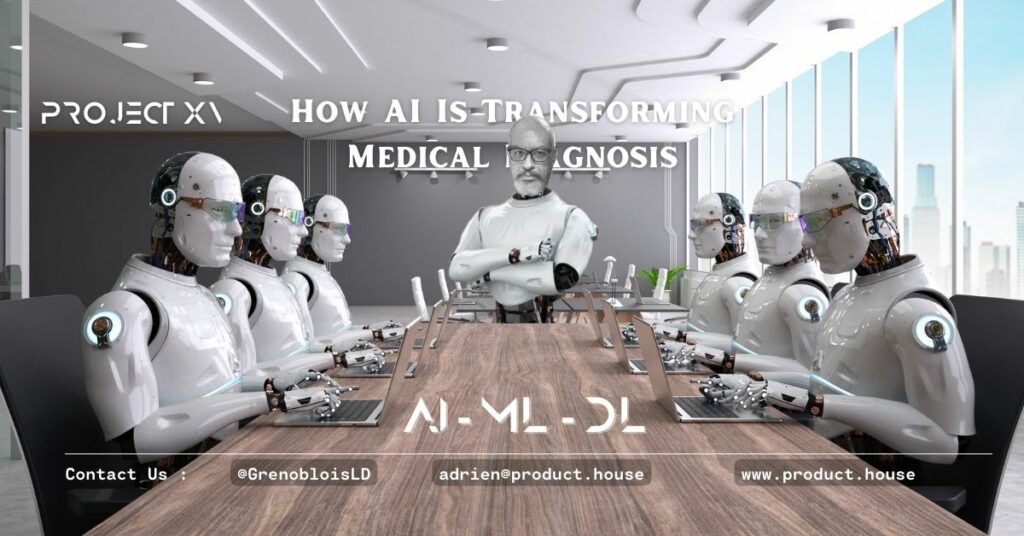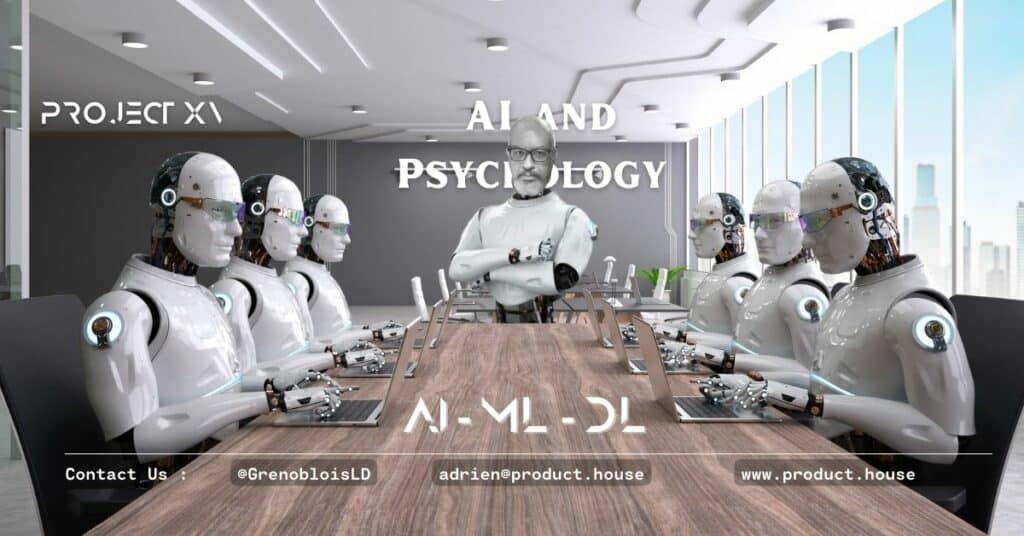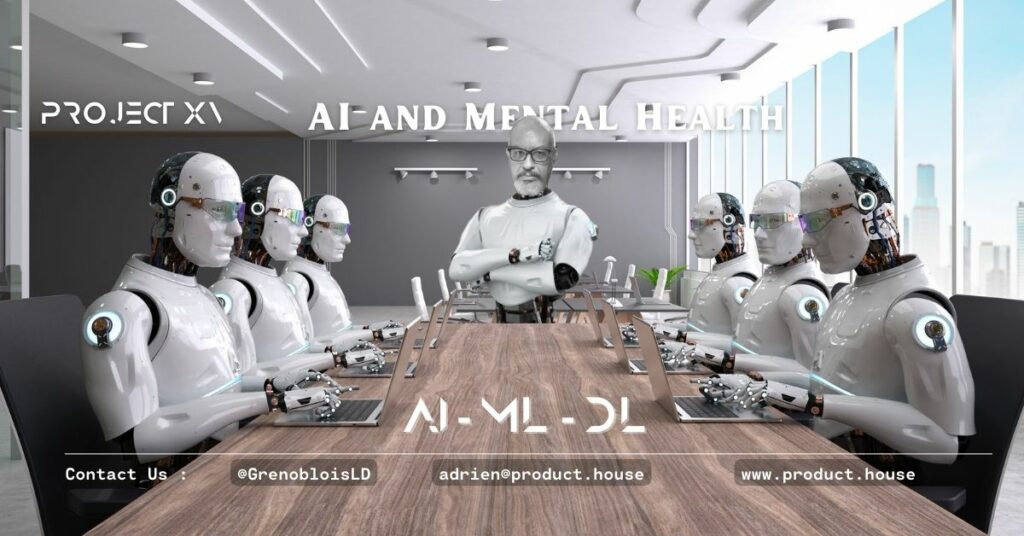How AI Is Transforming Medical Diagnosis and Treatment

Artificial intelligence (AI) is transforming the healthcare industry by improving the accuracy and speed of medical diagnosis and treatment. By using machine learning algorithms, healthcare professionals can analyze vast amounts of patient data and make predictions about patient outcomes, enabling them to provide personalized care and better health outcomes. In this article, we will explore the ways in which AI is transforming medical diagnosis and treatment.
Introduction
The traditional process of medical diagnosis and treatment can be time-consuming and error-prone. AI has the potential to revolutionize this process, by providing new tools and technologies that can help healthcare professionals provide better care to patients. With the ability to analyze vast amounts of patient data, AI can help healthcare professionals to make more informed decisions about diagnosis, treatment, and care.
AI and Diagnosis
One of the biggest challenges in medical diagnosis is accuracy. AI can help with this by analyzing patient data and identifying patterns that can help healthcare professionals make more accurate diagnoses. Machine learning algorithms can analyze vast amounts of patient data, including medical records, test results, and genetic information, to identify patterns and correlations that may not be immediately apparent to healthcare professionals.
AI can also help with early detection of diseases. By analyzing patient data, machine learning algorithms can identify patients who may be at risk of developing a particular disease, enabling healthcare professionals to provide early intervention and treatment.
AI and Treatment
Once a diagnosis has been made, the challenge becomes treatment. AI can help with this as well. By analyzing patient data and predicting outcomes, machine learning algorithms can help healthcare professionals choose the most effective treatments for their patients. This leads to better health outcomes and reduced costs.
AI can also be used to develop new treatments. By analyzing vast amounts of medical research data, machine learning algorithms can identify patterns and correlations that may lead to new treatment options.
AI and Patient Care
AI can also help with patient care. By analyzing patient data and predicting outcomes, healthcare professionals can provide personalized care that is tailored to the individual patient. This leads to better health outcomes and improved patient satisfaction.
AI can also help with patient monitoring. By analyzing patient data in real-time, healthcare professionals can detect changes in a patient’s condition and provide timely intervention and treatment.
Challenges and Opportunities
While AI has the potential to revolutionize medical diagnosis and treatment, there are also some challenges that need to be addressed. One of the biggest challenges is the need for high-quality data. Machine learning algorithms require large amounts of data to be trained, and the quality of the data is critical to the accuracy of the predictions. This means that healthcare professionals need to invest in data quality and data management to ensure that their machine learning models are accurate.
Another challenge is the need for expertise in data science and machine learning. Healthcare professionals need to have a good understanding of how machine learning works, and they need to be able to work with data scientists to develop and deploy machine learning models. This requires a certain level of technical knowledge, as well as an understanding of the healthcare context.
However, despite these challenges, there are many opportunities for the medical industry to use AI in new and innovative ways. With the right approach, AI can help healthcare professionals provide better care to their
patients, while also reducing costs and improving efficiency.
Resources and Further Reading
If you are interested in learning more about how AI is transforming medical diagnosis and treatment, there are many resources available to you. Here are a few recommendations:
Books:
- “The Patient Will See You Now: The Future of Medicine Is in Your Hands” by Eric Topol
- “Deep Medicine: How Artificial Intelligence Can Make Healthcare Human Again” by Eric Topol
- “AI in Healthcare: Building the Future of Medicine” by Terry Young and Aneurin Clancy
Online Courses:
- “AI in Healthcare” offered by Coursera
- “Machine Learning for Healthcare” offered by edX
- “AI for Medicine” offered by Udacity
University Courses:
- “Artificial Intelligence in Healthcare” offered by Stanford University
- “Machine Learning for Healthcare” offered by Carnegie Mellon University
- “Medical Applications of Machine Learning” offered by Massachusetts Institute of Technology
Examples:
- Diagnosis and treatment of cancer using machine learning algorithms
- Personalized care plans based on patient data and predictions
- Real-time patient monitoring using machine learning algorithms
FAQs:
Q: How is AI used in medical diagnosis? A: AI is used to analyze patient data and identify patterns that can help healthcare professionals make more accurate diagnoses. Machine learning algorithms can analyze vast amounts of patient data, including medical records, test results, and genetic information, to identify patterns and correlations that may not be immediately apparent to healthcare professionals.
Q: How is AI used in medical treatment? A: AI is used to analyze patient data and predict outcomes, helping healthcare professionals choose the most effective treatments for their patients. This leads to better health outcomes and reduced costs.
Q: What are some of the challenges of using AI in healthcare? A: One of the biggest challenges is the need for high-quality data. Machine learning algorithms require large amounts of data to be trained, and the quality of the data is critical to the accuracy of the predictions. Another challenge is the need for expertise in data science and machine learning.
Q: What are some examples of AI in healthcare? A: Examples of AI in healthcare include diagnosis and treatment of cancer using machine learning algorithms, personalized care plans based on patient data and predictions, and real-time patient monitoring using machine learning algorithms.
Q: What are some of the benefits of using AI in healthcare? A: The benefits of using AI in healthcare include improved accuracy and speed of medical diagnosis and treatment, personalized care for patients, and reduced costs.





